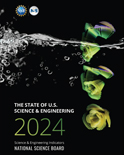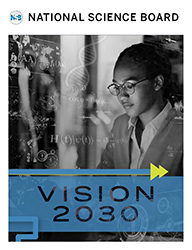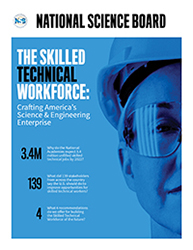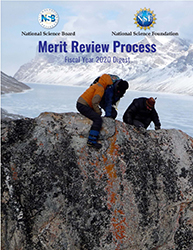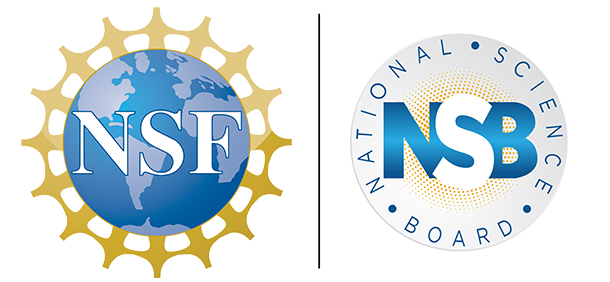
The National Science Board will hold a hybrid meeting August 15 – 16, 2023
The meeting will include an update from NSF on creating a safer work environment in Antarctica and a panel discussion about federal STEM workforce shortages
August 9, 2023
The National Science Board (NSB) will hold a hybrid meeting August 15 – 16, 2023 to address science and engineering policy issues relevant to the National Science Foundation (NSF). The meeting agenda and Sunshine Act Notice provide details.
On Monday, August 14, 9:00 a.m. – 10:30 a.m. ET, the NSB-NSF Commission on Merit Review will host a panel discussion: Federal Agency Perspectives on Grant Review Processes
Livestream: https://youtube.com/watch?v=VXGeleggyos
Five federal agency representatives will talk about how their agencies identify research to fund:
- Advanced Research Projects Agency for Health (Craig Gravitz, Director, Project Accelerator Transition Innovation Office)
- National Institutes of Health (Stephanie Constant, Review Policy Officer)
- Department of Energy (Linda Horton, Associate Director of Science for Basic Energy Sciences)
- National Aeronautics and Space Administration (Michael New, Deputy Associate Administrator for Research
- Defense Advanced Research Projects Agency (Jinendra Ranka, Director of Defense Sciences Office)
Tuesday, August 15: https://youtube.com/watch?v=N8-_Lf3lY4E
OPEN SESSION
9:00 – 10:25 a.m.
The NSB meeting kicks off with opening remarks from NSB Chair Dan Reed and NSF Director Sethuraman Panchanathan. That will be followed by a retrospective of NSB and NSF actions to advance the Board’s Vision 2030, especially developing STEM talent for America.
10:40 – 11:55 a.m.
STEM Workforce Shortages Across the Federal Government – a panel discussion abouttheSTEM workforce needs of federal agencies – from skilled technical workers with expertise and technical knowledge whose education is less than a bachelor’s degree, to those with advanced STEM degrees. NSB Vice Chair Victor McCrary will moderate the discussion with panelists:
Dr. Chavonda Jacobs-Young,Undersecretary for Research, Education, and Economics, U.S. Department of Agriculture
Vice Admiral U.S. Navy (retired) Paul Sullivan, Navy Special Advisor
Rear Admiral and Deputy U.S. Surgeon General Denise Hinton, U.S. Public Health Service Commissioned Corps
Melinda Higgins, Director of STEM Programs, U.S. Department of Energy, Office of Nuclear Energy
12:55 – 2:45 p.m.
NSF’s Office of International Science and Engineering will lay out its strategic vision, initiatives, promising collaborative opportunities, and challenges. NSB’s External Engagement Committee will report on its activities and the Science and Engineering Policy Committee will give an update on NSB’s Science & Engineering Indicators 2024 reports and on topics for potential NSB policy briefs.
The Board will then meet in closed session until adjourning for the day at 5:20 p.m.
Wednesday, August 16: https://youtube.com/watch?v=E7OTUOCV5HE
OPEN SESSION
8:30 – 9:40 a.m.
Day two of the meeting will start with an update on the NSF Engines Type-2 finalists and on the NSB-NSF Commission on Merit Review. NSF Chief of Research Security Strategy and Policy Rebecca Keiser will brief the Board on the agency’s progress to establish the Research Security and Integrity Information Sharing and Analysis Organization, as required by the CHIPS and Science Act.
9:50 – 10:50 a.m.
Chief Operating Officer Karen Marrongelle will give an update on the agency’s ongoing efforts to create a safer work environment in the Antarctic. Inspector General Allison Lerner will brief the Board on her team’s engagement in Antarctica.
The Board will then meet in closed session, adjourning at 2:25 p.m. Agenda items include: the status of the NSF Engines Type-2 competition, NSF’s FY 2025 budget, renewal of the Laser Interferometer Gravitational-Wave Observatory Operations and Maintenance Award, recommendations for the NSB’s contribution to the Office of Science and Technology Policy’s Quadrennial Science and Technology Review, and nominations for the NSB class of 2024 – 2030.
External guests may opt to attend open sessions of the NSB meeting in person. In-person visitors should email their name as it appears on their photo ID, along with affiliation, at least 24 hours in advance to nationalsciencebrd@nsf.gov.
About the National Science Board
The National Science Foundation Act of 1950 charged the NSB with two roles: governing board of the NSF and advisor to Congress and the President on policy matters related to STEM research and STEM education. Selected for their distinguished service and accomplishments in academia, government, and the private sector, the Board’s 24 presidentially appointed members are leaders in STEM research and education.
Media Contact: Nadine Lymn, National Science Board, (703) 292-2490, nlymn@nsf.gov
Useful NSB Web Sites:
Home Page: http://www.nsf.gov/nsb
Media Contact: http://www.nsf.gov/staff/staff_bio.jsp?lan=nlymn&org=NSF
News: http://www.nsf.gov/nsb/news
Meetings: http://www.nsf.gov/nsb/meetings
Publications: http://www.nsf.gov/nsb/publications
Facebook: https://www.facebook.com/NationalScienceBoard
Twitter: Twitter: https://twitter.com/intent/user?screen_name=NSF_NSB
YouTube: https://www.youtube.com/channel/UCkrHRzuGSrPp2haQs0T_Pww
To view PDF documents, please download Adobe Acrobat Reader.
